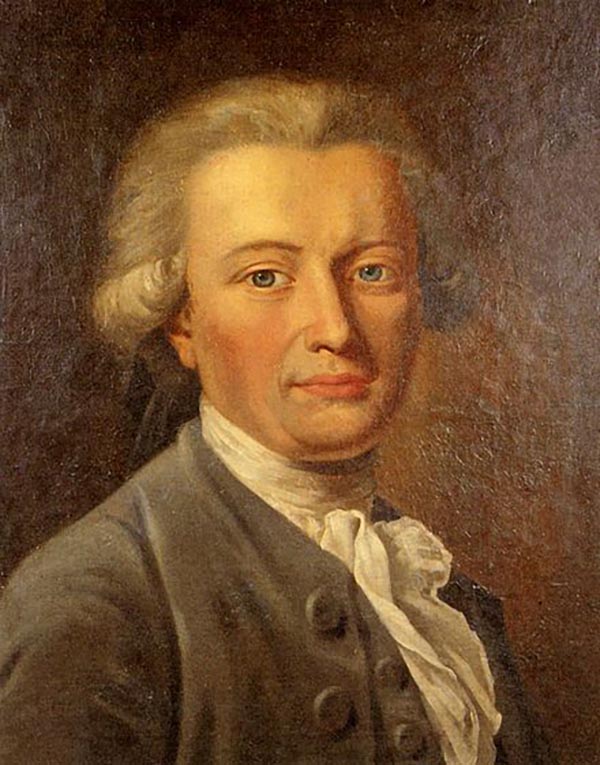Johann George Adam Forster, also known as Georg Forster (November 27 1754 – January 10, 1794) was a German naturalist, ethnologist, travel writer, journalist, and revolutionary. Born near Gdansk, he was the son of Johann Reinhold Forster, a Reformed Protestant pastor and scholar. Georg from early on expressed interest in the study of nature, in which his father indulged and instructed him. The ten-year-old Georg accompanied his father in travels, commissioned by the Russian government, to inspect German settlements along the Volga, a 2,500 mile journey resulting in the collection of hundreds of specimens of plants for taxonomy. Beginning October 1765, George attended Saint Peter's School in St Petersburg, but this was short lived: his father's report on the settlements was critical of the local Russian voivode, and father and son had to leave Russia without being paid. Their travels took them to London in 1766, where they would settle. Georg's facility with languages was such that at the age of 12 he was able not only to translate Lomonosov's history of Russia into English, but to continue it up to the present. The book was published. His father moved to take up a teaching position at Warrington Academy 1767, while Georg remained in London to apprentice with a merchant until, before joining his father at Warrington to study classics, religion, mathematics, French, and natural history: these two latter taught by his father.
His travels with his father would continue, most notably accompanying James Cook's second voyage to the Pacific, 1772-1775. His report of that journey remains an essential document on the ethnology of Polynesia. His efforts would be recognized with his admittance to the Royal Society at the age of twenty-two.
His return to Europe would signal a shift to academic life. He would hold teaching positions in Kassel, Vilna, and Mainz, whilst continuing to write on botany, ethnology and travel; he produced a German translation of Cook's diaries. An important figure in the German enlightenment, he was an active and influential writer: Alexander von Humbolt considered him the founder of both comparative ethnology and regional geography. He held a leading role in the establishment of the Mainz Republic in 1792, The When the French took control of Mainz in 1792, Forster played a leading role in the Mainz Republic, but was in Paris when Prussian and Austrian forces retook Mainz; Forster was thereafter unable to return and died in Paris of illness in 1794.
His travels with his father would continue, most notably accompanying James Cook's second voyage to the Pacific, 1772-1775. His report of that journey remains an essential document on the ethnology of Polynesia. His efforts would be recognized with his admittance to the Royal Society at the age of twenty-two.
His return to Europe would signal a shift to academic life. He would hold teaching positions in Kassel, Vilna, and Mainz, whilst continuing to write on botany, ethnology and travel; he produced a German translation of Cook's diaries. An important figure in the German enlightenment, he was an active and influential writer: Alexander von Humbolt considered him the founder of both comparative ethnology and regional geography. He held a leading role in the establishment of the Mainz Republic in 1792, The When the French took control of Mainz in 1792, Forster played a leading role in the Mainz Republic, but was in Paris when Prussian and Austrian forces retook Mainz; Forster was thereafter unable to return and died in Paris of illness in 1794.


